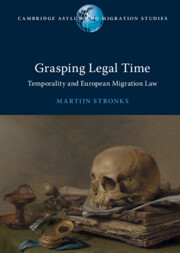This article, departing from Gila Stopler's ‘Rights in Immigration: The Veil as a Test Case’, published in the Israeli Law Review in 2010, reviews how the time spent by a long-term migrant, irrespective of legal status, normatively figures in liberal theories of migration and in the case law of the European Court of Human Rights (ECtHR). The article detects that in contemporary liberal theories, assigning an independent normative value to time spent by the migrant in the receiving country is a key move in balancing the competing interests of migrants and of the migrant-receiving country, where the right of the country to regulate migration is taken as given: the longer a migrant is present in a country, the stronger her interests become in receiving citizenship status or treatment akin to citizens. The article then surveys the case law of the ECtHR relating to long-term migrants. It finds that time is often one of multiple normative considerations in the balancing exercise, in conjunction with whether a migrant has achieved social integration in the migrant-receiving country and whether the right of the receiving community to regulate migration for reasons of affording citizenship, national security or distributive justice is paramount. The article argues that the lack of an independent normative weight afforded to time in the case law of the ECtHR is not merely a tension between the translation of liberal normative theory to legal policy. It also shows a deeper tension in liberal theories of migration between national liberalism and cosmopolitan liberalism.
